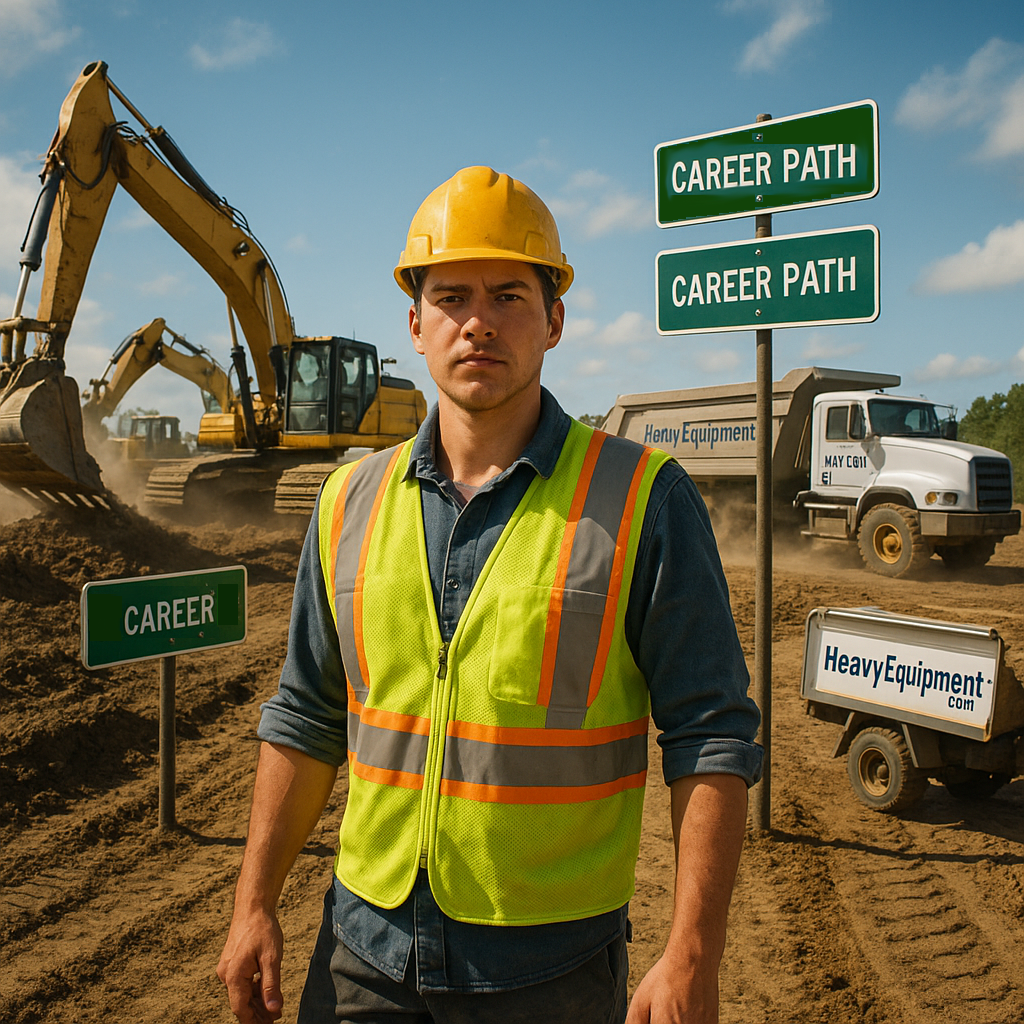Heavy Equipment Interesting Articles at HeavyEquipment.com
The Dirt Desk - Q&A
How Do I Enter the Field of Heavy Equipment Operators?
If you’re drawn to the rumble of diesel engines, the raw power of earthmoving machines, and the satisfaction of building something that lasts—being a heavy equipment operator might be the perfect career for you. But how exactly do you break into the industry?
This guide covers everything from training and certifications to job outlook and the machines you’ll likely start on.
What Does a Heavy Equipment Operator Do?
A heavy equipment operator controls a variety of construction machinery—such as excavators, loaders, bulldozers, graders, and more—to move materials, shape terrain, and execute precise grading or excavation tasks on jobsites.
Operators are employed in industries including:
• Civil construction (roads, bridges, subdivisions)
• Mining and quarrying
• Oil and gas
• Logging and forestry
• Utilities and infrastructure
• Equipment rental and logistics
Step-by-Step: How to Become a Heavy Equipment Operator
1. Meet the Basic Requirements
• Age: Typically 18 or older
• License: A valid driver’s license is usually required; a CDL (Commercial Driver's License) is a big asset
• Physical fitness: Operators must be able to sit for long periods, work in variable weather, and occasionally perform manual tasks
2. Complete Heavy Equipment Training
There are two primary paths:
A. Vocational School or Trade Program
• Programs range from a few weeks to several months
• Includes classroom instruction and hands-on seat time
• Often covers safety training (OSHA/MSHA), equipment maintenance, and basic operation of multiple machines
• May offer certifications such as NCCER or Operating Engineers union credentials
B. Apprenticeship or On-the-Job Training
• Offered by unions (e.g., IUOE – International Union of Operating Engineers) or employers
• Typically spans 3–4 years with structured hours for both classroom and field training
• Apprentices are paid while learning and often receive benefits
3. Get Certified (Optional but Valuable)
• NCCCO (National Commission for the Certification of Crane Operators) for crane work
• HAZWOPER for hazardous material sites
• GPS/machine control training for operators in modern automated environments
What Equipment Will You Start With?
Most operators begin on smaller or more versatile machines like:
• Skid steers or compact track loaders – Great for tight sites
• Backhoes – Good all-around training
• Mini excavators or loaders – Easier to learn controls before moving to full-size equipment
As you gain experience, you’ll progress to:
• Dozers
• Motor graders
• Excavators
• Scrapers or haul trucks (in mining/quarry applications)
Job Outlook & Career Path
Employment for heavy equipment operators is projected to grow faster than average over the next decade—especially with investments in infrastructure, utilities, and clean energy.
Career paths include:
• Site foreman or superintendent
• Equipment inspector or fleet manager
• Union instructor or safety officer
• Owner-operator or contractor
Skills That Set You Apart
• Understanding of grade stakes and blueprints
• Experience with GPS machine control (Trimble, Topcon, etc.)
• Basic hydraulic and mechanical troubleshooting
• Strong communication and safety awareness
Where to Find Jobs
• Construction companies and contractors
• Municipalities and government agencies
• Equipment rental companies
• Aggregates, mining, and logging companies
• Job boards and equipment-specific platforms like HeavyEquipment.com
Becoming a heavy equipment operator isn’t just about getting behind the controls—it’s about developing real-world skills, understanding how jobsites operate, and committing to safe, productive work. Whether you choose a training program, union apprenticeship, or learn on the job, the path is wide open for those ready to get their hands dirty and grow with the industry.

